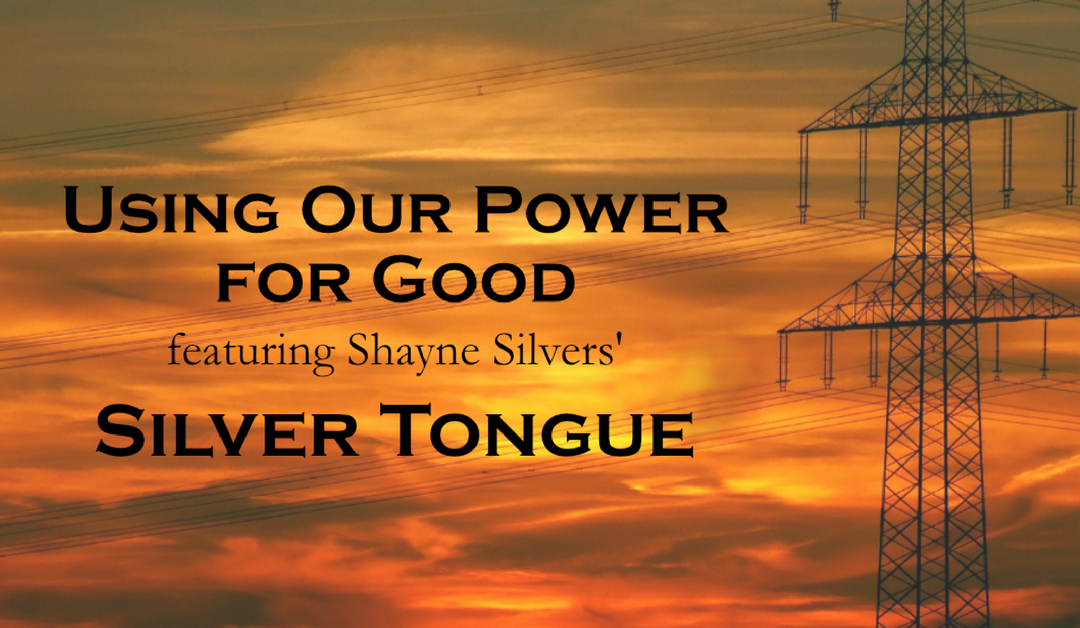I'm in the middle of the newest Shayne Silvers offering, Unchained, the first in the new Feathers and Fire series. In this book, we're introduced to Callie Penrose, a girl with a gift for magic and mayhem. As you know, I'm a fan of Nate Temple, Shayne Silvers' other series protagonist. Nate shows up in this book as well, but Callie is the focus. Callie is complex, cool and compelling. She is a woman divided. She is being pulled in different directions. She must choose who she will be, which side will win. I can relate. In the beginning of Unchained, Callie's mentor tells her the story of the two wolves. This is a favorite anecdote recounted in yoga classes all over the country. I've heard it a number of times. It goes like this:
An old Cherokee is teaching his grandson about life. “A fight is going on inside me,” he said to the boy.“It is a terrible fight and it is between two wolves. One is evil – he is anger, envy, sorrow, regret, greed, arrogance, self-pity, guilt, resentment, inferiority, lies, false pride, superiority, and ego.” He continued, “The other is good – he is joy, peace, love, hope, serenity, humility, kindness, benevolence, empathy, generosity, truth, compassion, and faith. The same fight is going on inside you – and inside every other person, too.” The grandson thought about it for a minute and then asked his grandfather, “Which wolf will win?” The old Cherokee simply replied, “The one you feed.”
I love this story. I know these wolves. They are endlessly hungry, but not equally aggressive. The whining of the bad wolf is so much louder than the whimpers of the good wolf. And everyone knows about the squeaky wheel getting the grease. It's true. To the loudest goes the spoils. And I have my theories about why that evil lupine is so much more flamboyant than his beneficent brother. If the choice is free, then the right choice is the more difficult one to make, as I've written about before here.
It's harder to feed the good wolf. He eats the more expensive food and requires more costly care. The good wolf is high maintenance. The evil wolf is the easy houseguest. We can throw some sheets and towels his way and rest assured that he'll handle it. Until it's time to pay the piper. You know, when we've gained 30 pounds. Or smoked some poisonous weed. Or killed someone when we were driving under the influence. “But Officer, I only had a couple of cocktails...”
It's simple to make good choices. But it's not easy. In fact, it’s as hell. In Unchained, Callie has to make some choices about who she's going to be and for whom she's going to work. What will her life mean? Will she fight for justice or succumb to fear? These are fictional choices of a fictional character, but they reflect the truth that faces all of us. Who are we going to choose to be, based on our actions, our affiliations, our choices?
I don't know about you, but this shit is hard, especially when it's real. Will we be the enabler or the enforcer as parents? When no one is looking, will we leave a note on the windshield of the car we just side-swiped? Will we take that flirtation the next level while we rationalize that our spouse has already done the same or that it has no bearing on our marriage?
The examples are as endless as individuals who make these choices. It's hard. There's a war inside of us, just like the one raging in Callie Penrose. Which wolf will we feed? Can we feed one and then the other in an endless see-saw of good versus evil? Can we, like the protagonist of QBVII, make up for our mistakes with good deeds? Does the evil wolf, once indulged, slink off meekly into the sunset with his tail between his legs, never to be heard from again? Or does he come back emboldened? What if he's a werewolf and not just a regular wolf? Does that give him more power?
Who the fuck knows? Not me. Maybe Callie. Or Nate Temple. Or Shayne Silvers. But definitely not me. I'm confused and fearful that I'm feeding the wrong wolf. I'm sure it won't get me where I want to be. But that just makes me like everyone else. Like Callie and Nate. Feeding the wolf who howls the loudest. Or maybe the wolf who's hungrier. The good wolf is always the one who's starving. Because the evil wolf is fat, dumb and deadly.








